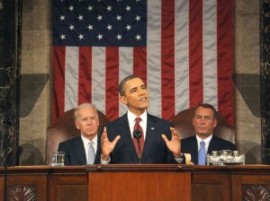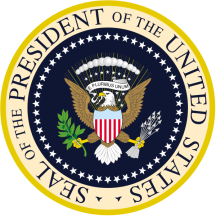 Lush is a popular shop which sells creams, soaps, shampoos, shower gels, lotions, moisturizers, scrubs, masks and most notably bath bombs. Lush is considered by some a luxury good some think the price is too high for a product that has a one time use. As a consumer, I do think Lush’s goods can be overpriced but when it comes to bath bombs, no other company makes ones like the high quality ones from Lush. Speaking from experience, most bath bombs simply sink to the bottom, fizz and change the water to a different color. These bath bombs are considered inferior goods compared to the ones form Lush. Bath bombs from Lush do what off brand bath bombs do but also usually create foam, float and sometimes include other features. The consumer is definitely getting more for their money by purchasing a bath bomb from Lush but the prices of substitute goods create incentive for consumers to look for other places to shop.
Lush is a popular shop which sells creams, soaps, shampoos, shower gels, lotions, moisturizers, scrubs, masks and most notably bath bombs. Lush is considered by some a luxury good some think the price is too high for a product that has a one time use. As a consumer, I do think Lush’s goods can be overpriced but when it comes to bath bombs, no other company makes ones like the high quality ones from Lush. Speaking from experience, most bath bombs simply sink to the bottom, fizz and change the water to a different color. These bath bombs are considered inferior goods compared to the ones form Lush. Bath bombs from Lush do what off brand bath bombs do but also usually create foam, float and sometimes include other features. The consumer is definitely getting more for their money by purchasing a bath bomb from Lush but the prices of substitute goods create incentive for consumers to look for other places to shop.
The Lush product called the Giant Rose Bombshell costs $19.95. It is important to weigh the cost and benefits before purchasing this. While this bath bomb is three times larger than a regular one and contains oil, perfume, and rose petals, the consumer is still paying a good bit of money for a one time use item. In contrast, one can buy a set of six bath bombs at Walmart for $12.95. Regular Lush bath bombs typically sell from $6.95-$8.95 but Dollar Bath Bombs typically sells their’s for $1-$5.95. During holiday season, Lush makes a lot of profit by selling wrapped gift sets which contain a mix of their products. Some the gift sets are very expensive, one costs $129.95 but contains 14 products. Many choose to buy these products from secondary markets such as eBay.
I do not believe the Lush will lower their prices because their products remain in high demand. I also believe that Lush will continue to be successful in the near future because they have little competition when it comes to their specialty. Another thing that I like about Lush is that they do not sell any products which use animal testing and their products are vegan. Lush also sells a lotion called the “Charity Pot” which donates 100% of their profit to charity. The company has given over $10,000,000 to grassroots charities in 42 countries. Employees that work in the Lush factories and stores are treated with respect and make above minimum wage (minimum wage is $7.25 in Texas). These features create more incentive for consumers.
While I am conscientious about my spending, I will keep on purchasing Lush products despite the price because for me the benefits outweigh the costs and they are something I really enjoy. There are ways to be a Lush consumer and a conscientious shopper. Lush is not a store I go to all the time and I usually only make a few purchases when I go. I also only go when I have a good bit of money saved. \
Posted by evied2018

 Many forces shape the political strategy of presidential elections, but few are more significant than the Electoral College. This complex, rather odd institution was yet another compromise at the Constitutional Convention, a means to moderate the “passions of the public” and to allow smaller states a greater say in the selection of the president.
Many forces shape the political strategy of presidential elections, but few are more significant than the Electoral College. This complex, rather odd institution was yet another compromise at the Constitutional Convention, a means to moderate the “passions of the public” and to allow smaller states a greater say in the selection of the president. Now that we have viewed
Now that we have viewed 
 In government elections today money has become a major part of running for office. Many political parties raise money in effort to try to get their representatives to be more publicized, so that they have a better chance of getting elected. It has become more than that though, money is starting to become more of the candidates and parties focus than the election itself. They believe that they ultimately need money to win elections, which is sadly true. The only political parties that have been elected into the presidency are Republicans and Democrats. There are more political parties in the United States besides the two, but no one ever hears about them because they attain a less amount of money than the other parties. Money is an issue in government elections today and Congress should put a limit on it because it is unconstitutional. The money that is implicated with the election process is unjust: different parties have more cash than others, individuals and groups are taking advantage, and it is making government more corrupt.
In government elections today money has become a major part of running for office. Many political parties raise money in effort to try to get their representatives to be more publicized, so that they have a better chance of getting elected. It has become more than that though, money is starting to become more of the candidates and parties focus than the election itself. They believe that they ultimately need money to win elections, which is sadly true. The only political parties that have been elected into the presidency are Republicans and Democrats. There are more political parties in the United States besides the two, but no one ever hears about them because they attain a less amount of money than the other parties. Money is an issue in government elections today and Congress should put a limit on it because it is unconstitutional. The money that is implicated with the election process is unjust: different parties have more cash than others, individuals and groups are taking advantage, and it is making government more corrupt.





